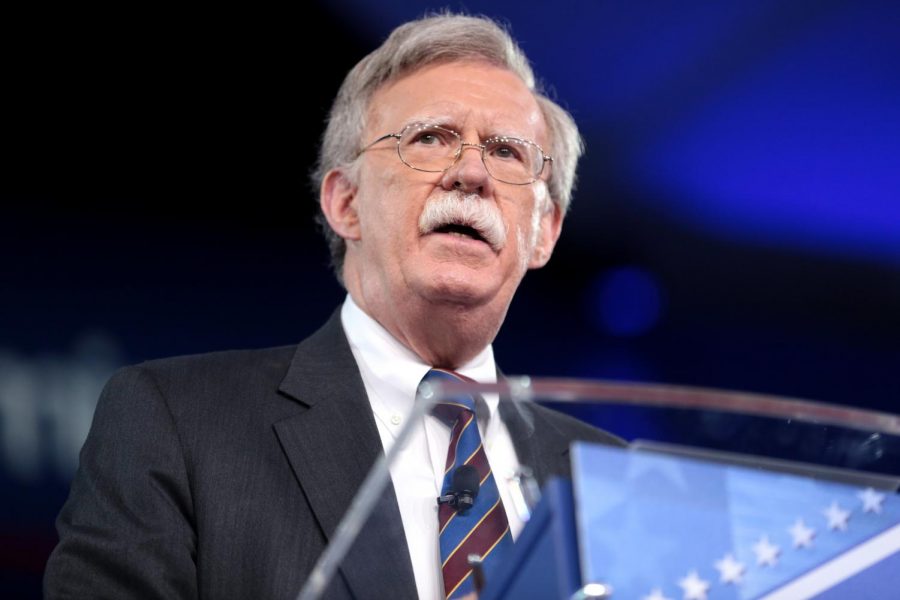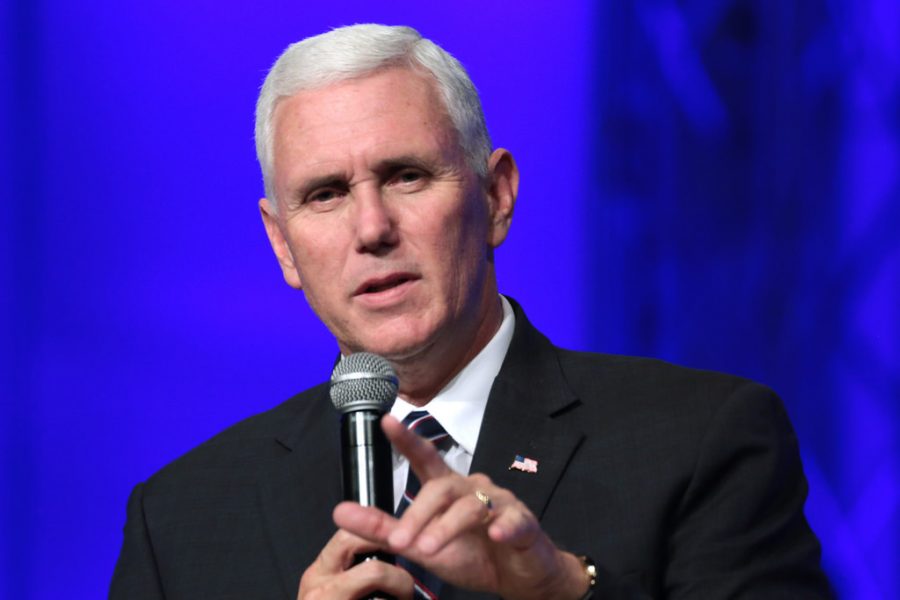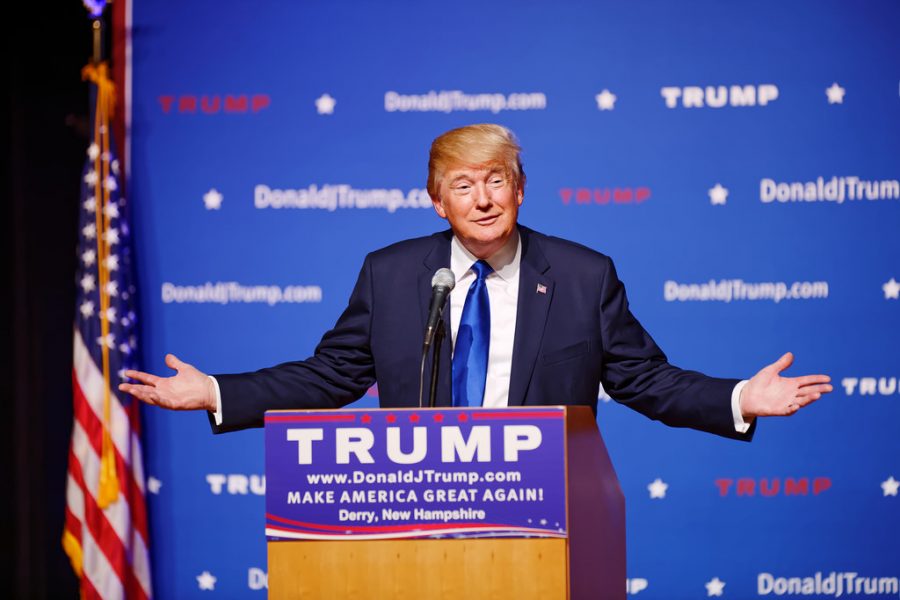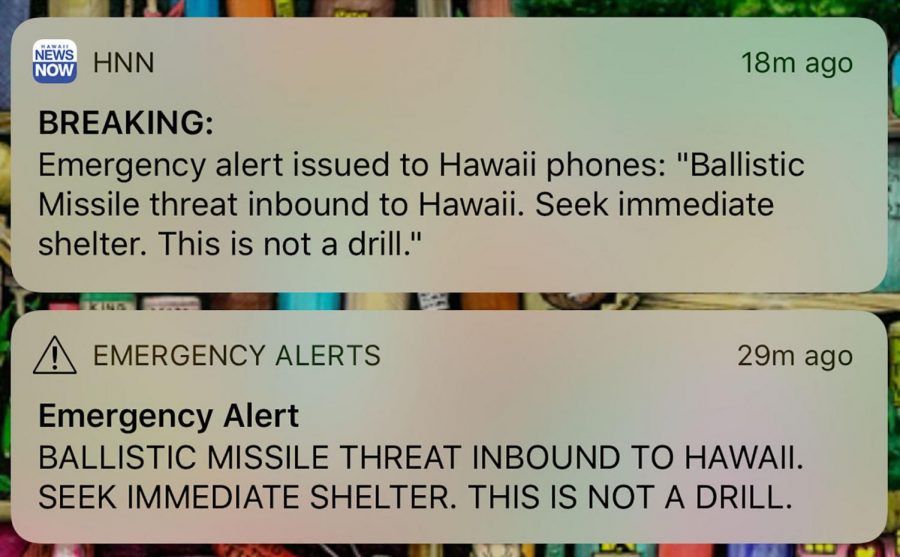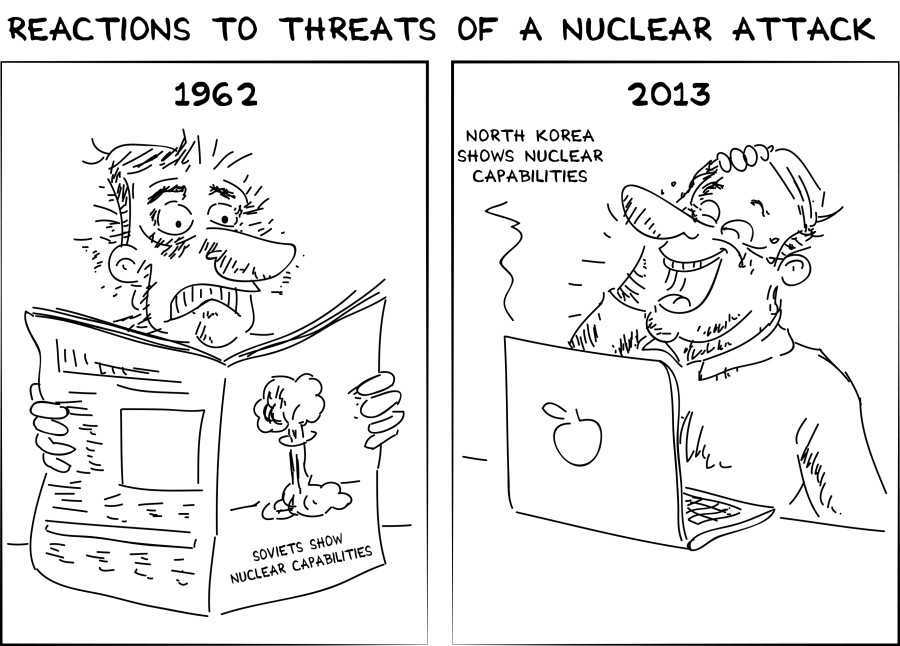After calls by North Korea this spring for nuclear war against the United States and its Asian allies, the Tribune sat down with Marquette professors to help make sense of the developing conflict and North Korea itself.
Henry Friman, a professor of political science, said Kim Jung-un’s recent rhetoric is as much about North Korean domestic politics as it is about international relations.
“You have a new young leader trying to carve out his place in his country.” Friman said. “What happens typically (is that) as negotiations begin he can say he backed down the threat from the West and once again show the strength of the regime as shown by his father and grandfather.”
President Obama said Wednesday that he doesn’t believe North Korea can fit a nuclear warhead on a missile. The statement cast doubt on a Pentagon report last week that said North Korea is capable of nuclear weaponry. Friman agrees with the president and said he sees no evidence that North Korea possesses the technology to attack the mainland United States.
“The biggest problem is that North Korea has nuclear weapons, but getting them technologically capable to the point where they can hit the U.S. hasn’t happened yet.” Friman said. “What happens right now is that once again the international community will behave responsibly and use back channel negotiations with China to put pressure on North Korea to ramp the rhetoric down. And eventually we’ll do this ritual over again.”
Michael Donoghue, an assistant professor of history, noted that North Korea is one of the world’s more interesting regimes because it acts like a communist dynasty. Rule has been passed down from founder Kim Il-sung to his son Kim-Jon-Il and now to Kim Jung-un.
“It seems to me they’ve used these tactics in the past, using aggressive statements hoping they might get some concessions.” Donoghue said. “It’s a very closed, Stalinist society, with a huge cult of personality. The Clinton and Bush administrations both diplomatically engaged North Korea in the past, and typically what happened was they continued to develop their nuclear program.”
When engaging with North Korea, the United States has chosen to engage in multilateral negotiations rather than bilateral talks directly with the country. China and South Korea are always included in negotiations with the North. Daniel Meissner, a professor of history and director of undergraduate studies, said China is a key player in any discussion because of a shared history and government type with North Korea.
“On one hand they have history in the Korean War, and the other is that they share borders, the third is that they’re communist.” Meissner said. “So they both see the West as ‘the other.’ In a world where you have a small number of communist states in existence, ideologically they are bound together. China supports North Korea in terms of ideology, but in terms of leadership and policy they are miles apart.”
Meissner noted that in recent years, China has been increasing its economic and political liberalization, but North Korea has continued to strengthen its control on its state-run economy and one-party political system. However, China supports the North Korean regime to keep the status quo in East Asian relations.
“If North Korea was liberalizing, it would have slowly been liberalizing in the past two leaders,” Meissner said. “We’re seeing the opposite of that. At the moment, this saber-rattling going on causes tensions and causes the status quo to shift, so China wants to negotiate back to that.”
Kim Jung-un attended school in Switzerland before he rose to power. His European education led many experts to hope Kim Jung-un’s new regime would be much friendlier to the West and be willing to engage in nuclear disarmament.
“There was a little bit of hopeful thinking, because you had a young leader who spent time studying in the West (Switzerland), and there was a hope that this might be an opportunity for change to take place — obviously that hope was misplaced.” Friman said. “Again, you have a new young leader in a country trying to establish his reputation, the way the regime is set up, the world has to seem threatening in order for the regime in North Korea to make sense. The North needs this type of restrictive government to combat a world that is threatening.”



